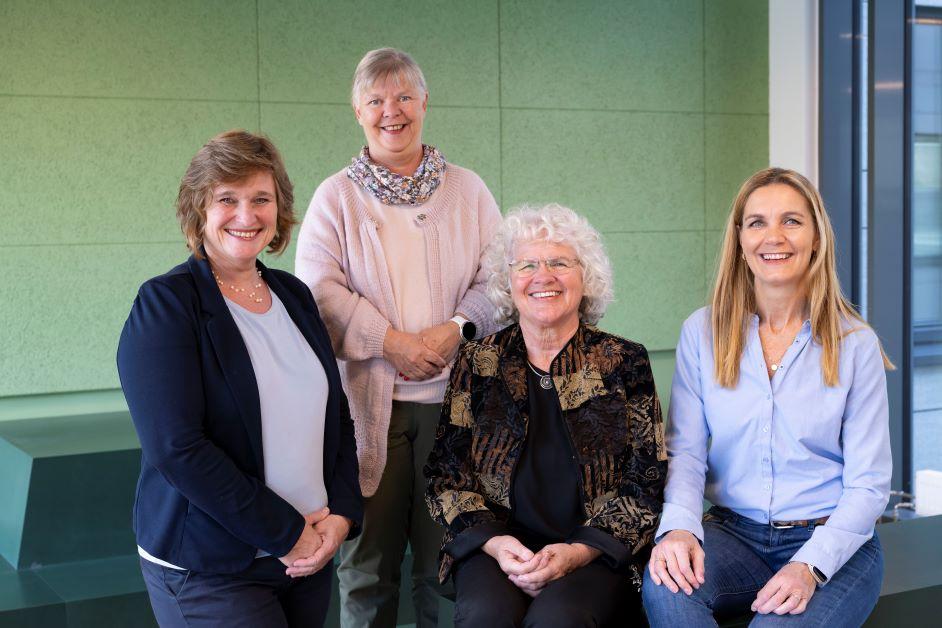New Method Maps Youth Engagement
A large international project on young people's political and civic engagement is examining their relationship with local politics and participation.

Hovedinnhold
How are young people engaging with the society around them—and with politics? In Norway and many other European countries, researchers and politicians are seeing a decline in political engagement and interest among youth.
“This is concerning since young people’s perspectives are essential for making well-informed decisions that affect them. We want to understand what drives initiative and engagement in youth, what motivates them to participate in local democratic processes, and to become involved in their leisure communities,” says project leader Oddrun Samdal.
Participation in democratic processes in daily life also helps develop democratic skills and trust in democracy, which is important for young people to become active citizens. But what does it take to get there?
In the ENGAGED research project, Samdal and her research colleagues aim to uncover what fuels civic engagement. Researchers from Norway, Spain, England, Portugal, and Romania are involved with the project, led by Department of Health Promotion and Development (HEMIL), Faculty of Psychology at the University of Bergen (UiB). The Norwegian researchers have been part of a youth research network for many years already.
A brand-new scale to map engagement
The researchers will use three major data sources as the basis for the new scale: data from the Health Behavior in School-aged Children (HBSC)-survey, qualitative in-depth interviews with young people, and participation in various youth groups.
“Our goal is for the policy recommendations developed by European youth during the project to be implemented, and we will develop a new scale to assess youth engagement,” says Professor Oddrun Samdal.
Survey data from 50 countries, including Norway, from the HBSC-study will allow researchers to examine changes over time and across countries related to youth engagement. Samdal and her colleagues at UiB took over leadership and coordination of HBSC in June.
Measuring identity
The project will explore young people’s social, cultural, and political identity, their engagement with the community around them, and their participation in democratic decision-making processes.
“Understanding belonging is central to this context. How is cultural, social, and political belonging created? And how does this, in turn, influence the development of young people's identities?
It involves various processes young people are invited into, from student councils to different associations. All of these contribute to shaping young people’s identities and engagement. The researchers will also look at young people’s sense of belonging to their local communities. What impact might this have on their engagement? They will examine which young people take the initiative and why. How do they encounter different groups and processes, and what characterizes the youths who care about their local communities?
“It could be about organizing a fundraiser, participating in community work, or volunteering as a coach. Who gets involved, and what inspires them?”
Living conditions as a driver?
The study includes young people aged 13–25, focusing on how civic engagement develops over this period. The researchers will place particular emphasis on minority youth to see if they have specific needs that should be addressed.
“Perhaps their experiences are especially driving them to change living conditions, which makes it interesting to explore whether this leads to stronger engagement,” says Samdal.
This part of the project will be conducted by researchers in Romania, among the Romani people, with findings compared to those from other regions. Samdal emphasizes that the knowledge gained from the project can help strengthen democracy and democratic processes in Europe. It can also help ensure that young people have good opportunities to engage and become active citizens who exercise their right to vote.
“It’s also important to understand what motivates young people to participate before they turn 18.”
Living Labs with policy recommendations
In addition to focus groups and questionnaires, the researchers will use Living Labs in England, Portugal, and Spain.
“This means that researchers work directly with young people involved in local volunteer organizations working with minority groups and other youth groups.
Young people develop proposals for political solutions and action plans for political engagement and present them to politicians.
“I don’t think we can overestimate the importance of experiencing belonging in a local community and how this relates to youth engagement,” concludes professor Oddrun Samdal.

